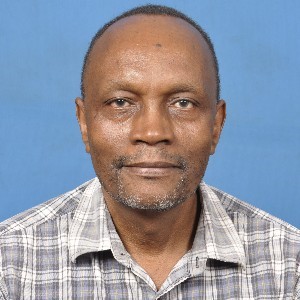 The department would like to congratulate Prof. Mwaseba for presenting a paper at the 15th International SANORD (Conference Africa-Nordic Centre) conference at the Inland Norway university of applied Sciences, Hamar, 20-22 September, 2023. The title of the presentation is “Building Capacity in Agroecology for Sustainable Food System: the Experience of Tanzania. ” The abstract is below
The department would like to congratulate Prof. Mwaseba for presenting a paper at the 15th International SANORD (Conference Africa-Nordic Centre) conference at the Inland Norway university of applied Sciences, Hamar, 20-22 September, 2023. The title of the presentation is “Building Capacity in Agroecology for Sustainable Food System: the Experience of Tanzania. ” The abstract is below
Building capacity in agroecology for sustainable food systems: The experience of Tanzania
Dismas L. Mwaseba[1], Kallunde P. Sibuga[2], Paul M. Kusolwa2, Anthony Z. Sangeda[3], Evelyne A. Lazaro[4], Newton L. Kilasi2, Devotha B. Mosha[5], Suzana S. Nyanda[6], Siwel Y. Nyamba1
Agriculture provides the main source of livelihoods in most Sub-Saharan countries. In Tanzania, for example, it provides a livelihood to more than three quarters of the population, mostly small-scale farmers. It accounts for 15 percent of national exports and contributes 27.8 per cent of Tanzania’s Gross Domestic Product. However, most recently the sector in general and food systems in particular have become more vulnerable and less resilient to the global effects of climate change and thus threatening their sustainability. In part the poor performance of the sector in the country has been blamed on, among others, the conventional approach to agriculture based on the green revolution model that strongly advocates extensive use of external inputs to increase productivity. As a result, an agroecology-based approach to agricultural development has been advocated as being appropriate for promoting development of the sector especially in the context of climate change. It can be argued that adoption of such an approach is in keeping with the 2030 Agenda for Sustainable Development, which among others seeks to achieve a world that is free of hunger and extreme poverty, one that protects sustainable use of biodiversity, natural resources and ecosystems services for development. Drawing on the experience of Tanzania, this paper highlights on the policy environment vis a vis agroecology in the country. Next efforts being made to build capacity aimed at promoting agroecology both at formal and informal levels are presented. Finally, it points out the challenges that need to be overcome to successfully build capacity for agroecological transition and ultimately enhance sustainable food systems.
Key words: Agriculture, agroecology, agroecological transition, vulnerability, resilience, sustainable food systems, Tanzania
[1] Department of Agricultural Extension and Community Development, , Sokoine University of Agriculture, Morogoro, Tanzania
[2] Department of Crop Science and Horticulture, College of Agriculture, Sokoine University of Agriculture, Morogoro, Tanzania
[3] Department of Animal, Aquaculture and Range Sciences, Sokoine University of Agriculture, Morogoro, Tanzania
[4] Department of Agricultural Economics and Agribusiness, College of Economics and Business Studies, Sokoine University of Agriculture, Morogoro, Tanzania
[5] Institute of Continuing Education, Sokoine University of Agriculture, Morogoro, Tanzania
[6] Department of Sociology and Anthropology, College of Social Sciences and Humanities, Sokoine University of Agriculture, Morogoro, Tanzania
